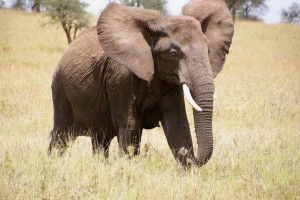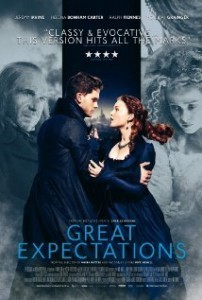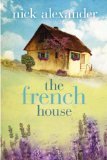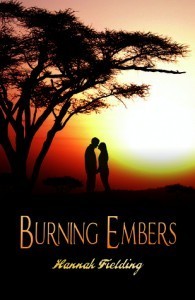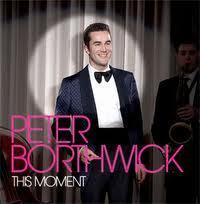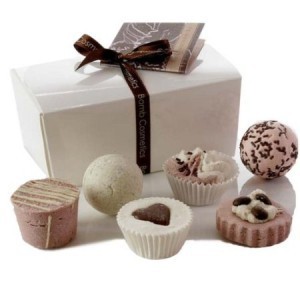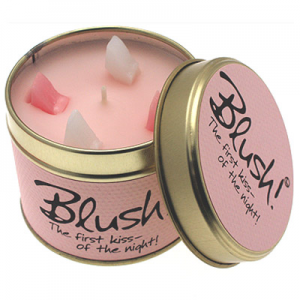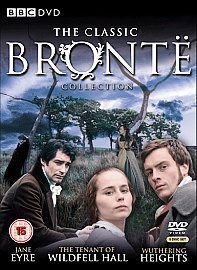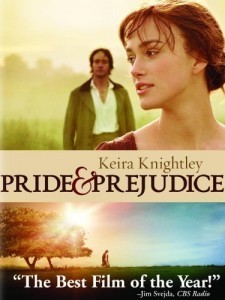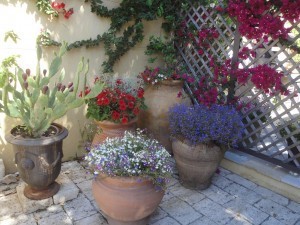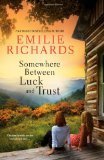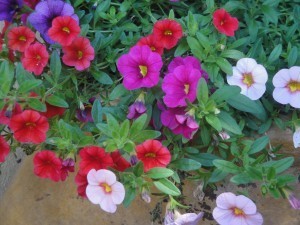Hannah Fielding's Blog, page 131
May 1, 2013
France is calling…
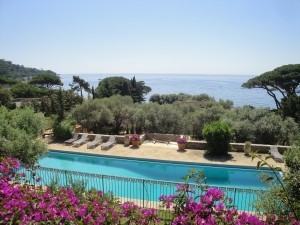 This week I’m returning to my French home. I can’t wait for long, lazy, summer days and lying with a book beside the pool.
This week I’m returning to my French home. I can’t wait for long, lazy, summer days and lying with a book beside the pool.
April 30, 2013
Favourite poem: Les Elephants (The Elephants) by Leconte de Lisle
I love elephants – who could fail to be impressed by their stature and presence and magnitude and loyalty and intelligence? They are the largest land-bound mammals, and surely among the most awe-inspiring of creatures.
One of my favourite scenes to write in Burning Embers was that in which Coral and Rafe take a hot-air balloon ride over the African landscape, allowing Coral a chance to photograph the wildlife for a magazine article she has been commissioned to write:
The balloon was still rising, its direction fixed by the whim of the wind. The air was crisp, a whispering light breeze hitting them in the face as the aircraft ascended. The passengers watched silently as the thrilling spectacle of nature’s daily life unfolded. They caught sight of a herd of elephants rushing toward a lake in the distance: massive, magnificent animals led by the female, their large ears flapping in the morning air.
I also brought in elephants when exploring the subject of hunting in Africa – a pursuit that Coral’s former fiancé, Dale, adores and Coral abhors.
Breakfast was lively, everybody giving their impressions about the morning’s excursion. Dale was, as usual, effusive about his own exploits, telling whoever would listen about his participation in hunting parties after great herds of elephants. “We set off from Baringo, over the hills of Kamasia into Turkana and Samburu country. But the best place for hunting elephants is, of course, the Tsavo Park. Unfortunately, the hunters from the Wakamba and the Waliangulu tribes seem to have the monopoly there. It’s such a shame, really. They use some sort of poison that they find in the bush. Rather primitive but quite clever, I suppose.”
The African elephant, then, is not just part of the wildlife, but also part of politics – and, essentially, culture. For African folklore and proverbs are rich with the elephant. Take the following extracts from Burning Embers:
‘When two elephants jostle, what gets hurt is the grass!’ With change comes conflict. Tribal unrest has begun to take its toll on communities.
…
Among my people, wise men say that with ropes made from a woman’s hair, one can easily tie an elephant. A wife must keep hold of her husband with smiles and love and good food. Otherwise he strays.
In my research for Burning Embers, I came across the elephant constantly, and in many ways the mighty creature came to represent part of the setting in my mind. Of course, I had long thought of Africa with the elephant in mind, because one of my favourite poets, Leconte de Lisle, whose poems I first fell in love with as a young girl at school, wrote a wonderful poem entitled Les éléphants. The poem so perfectly encapsulates what it means to be an elephant, and every time I read it, I am transported to Africa.
I have had the poem translated so you can enjoy it, and as always when sharing a French poem, I include the original poem below, because it is all the more romantic and atmospheric in that language (say éléphant out loud in your best French accent and then elephant in your native accent and you’ll see what I mean!). With thanks to John Harding for the translation.
The Elephants
The red sand is like an endless sea,
Blazing, wordless, slumped in its bed.
Unmoving waves stretch along
The horizon with its coppery fumes, man’s dwelling.
No life nor sound. All the fed lions
Are sleeping deep in their dens a hundred leagues hence,
And the giraffe drinks from the blue springs,
Yonder, beneath the date-palms which the panthers know.
No bird goes by, beating with its wing
The dense air through which an immense sun goes round.
At times some boa, warmed in its sleep,
Ripples its back with glittering scales.
Likewise the kindled expanse burns beneath the unclouded heavens.
But, whilst everything slumbers in the cheerless emptiness,
The rugged elephants, those slow and clumsy travellers,
Cross the deserts to the country of their birth.
From a spot on the horizon, like brown lumps,
They come, throwing up the dust, and one can see that,
So as not to stray from the straightest path,
They make the distant dunes slip down under their broad and firm feet.
He who leads the way is an old chieftain. His body
Is covered with cracks like a tree-trunk gnawed and consumed by the weather.
His head is like rock, and the curve of his spine
Arches powerfully with his slightest effort.
Never slowing and not halting his march,
He guides his dusty companions to the certain goal;
And, leaving a ploughed sandy furrow behind them,
The enormous pilgrims follow their patriarch.
With ears spread like fans, their trunks between their teeth,
They make their way with eyes closed. Their bellies throb and steam,
And their sweat rises in the flaming air like a mist;
And a thousand glowing insects hum all around.
What do they care for thirst and the consuming fly,
And the sun baking their black and wrinkled skin?
They march on dreaming of the forsaken land,
Of the forests of sycamore-figs where their breed sheltered.
They will see again the river broken forth from the great heights,
Where the huge hippopotamus swims along bellowing,
Where, turned white by the moonlight and casting forward their shadows,
They would crush the reeds going down to drink.
Also, full of courage and deliberation, they pass on
Like a black line, in the endless sands;
And the desert resumes its stillness,
As the ponderous travellers fade on the horizon.
Les éléphants
Le sable rouge est comme une mer sans limite,
Et qui flambe, muette, affaissée en son lit.
Une ondulation immobile remplit
L’horizon aux vapeurs de cuivre où l’homme habite.
Nulle vie et nul bruit. Tous les lions repus
Dorment au fond de l’antre éloigné de cent lieues,
Et la girafe boit dans les fontaines bleues,
Là-bas, sous les dattiers des panthères connus.
Pas un oiseau ne passe en fouettant de son aile
L’air épais, où circule un immense soleil.
Parfois quelque boa, chauffé dans son sommeil,
Fait onduler son dos dont l’écaille étincelle.
Tel l’espace enflammé brûle sous les cieux clairs.
Mais, tandis que tout dort aux mornes solitudes,
Lés éléphants rugueux, voyageurs lents et rudes
Vont au pays natal à travers les déserts.
D’un point de l’horizon, comme des masses brunes,
Ils viennent, soulevant la poussière, et l’on voit,
Pour ne point dévier du chemin le plus droit,
Sous leur pied large et sûr crouler au loin les dunes.
Celui qui tient la tête est un vieux chef. Son corps
Est gercé comme un tronc que le temps ronge et mine
Sa tête est comme un roc, et l’arc de son échine
Se voûte puissamment à ses moindres efforts.
Sans ralentir jamais et sans hâter sa marche,
Il guide au but certain ses compagnons poudreux;
Et, creusant par derrière un sillon sablonneux,
Les pèlerins massifs suivent leur patriarche.
L’oreille en éventail, la trompe entre les dents,
Ils cheminent, l’oeil clos. Leur ventre bat et fume,
Et leur sueur dans l’air embrasé monte en brume;
Et bourdonnent autour mille insectes ardents.
Mais qu’importent la soif et la mouche vorace,
Et le soleil cuisant leur dos noir et plissé?
Ils rêvent en marchant du pays délaissé,
Des forêts de figuiers où s’abrita leur race.
Ils reverront le fleuve échappé des grands monts,
Où nage en mugissant l’hippopotame énorme,
Où, blanchis par la Lune et projetant leur forme,
Ils descendaient pour boire en écrasant les joncs.
Aussi, pleins de courage et de lenteur, ils passent
Comme une ligne noire, au sable illimité;
Et le désert reprend son immobilité
Quand les lourds voyageurs à l’horizon s’effacent.
April 28, 2013
Favourite movie: Great Expectations (2012)
Having seen the cast list, I confess I myself had great expectations for this film!
Jeremy Irvine as Pip
Helena Bonham Carter as Miss Havisham
Holliday Grainger as Estella
Ralph Fiennes as Magwitch
Robbie Coltrane as Mr Jaggers
And, of course, direction by Mike Newell (Four Weddings and a Funeral, Love in the Time of Cholera, Harry Potter and the Goblet of Fire) and screenplay by David Nicholls (author of One Day, 2010 Galaxy Book of the Year and adapted for a feature film).
Well, the film did not disappoint. I was gripped from the opening scene – that dark, chilling moment when a young boy visiting his parents’ grave is accosted by an escaped convict – until the final one, which is the happiest ending you’ll get from a Dickens novel, albeit a little abrupt.
The settings are wonderful – from the marshes of Kent, remote and serene, to inner-city Victorian London, dark and noisy and gritty, just as you’d expect for Dickens (to the point which you half-expect the Artful Dodger to appear and pickpocket someone). Wemmick’s ‘Englishman’s home is his castle’ setting is beautifully created – how wonderful to have a drawbridge to your little Woolwich house!
This isn’t a film for light viewing – in typical Dickens form, the plot twists and turns, and connecting the threads requires concentration. But that said, the writer and director do a super job of distilling the book for the screen without losing crucial elements.
It’s a film about love – the love of a parent for a child, and the love of a man for a woman. Magwitch is heartbreakingly good as the self-adopted father, and the chemistry between Estella and Pip is palpable, all the more so for the fleeting nature of their moments together.
But for me, the best part of the film is Helena Bonham Carter as Miss Havisham. Really, any role that actress touches is brought to life. (No wonder she’s had two Academy Award nominations, six Golden Globe nominations, an International Emmy, a BAFTA and a Screen Actors Guild Award, and was awarded a CBE last year by the Queen.) She is perfect as the jilted and damaged Miss Havisham, and her performance evoked a lot of empathy in me for the character, which I don’t recall feeling when I read the book.
In all, certainly worth watching if you enjoy period drama and agree with Dickens, as I do, when he said of his book, ‘it is a very fine idea.’
April 26, 2013
Book review: The French House by Nick Alexander
From the blurb:
CC is trapped by a job she no longer loves in an unfriendly city. So when her new boyfriend decides it’s time to sell up and move to the South of France, she decides in seconds to change her life. After all, who wouldn’t pick an azure sea, aperitifs and sunshine over a dreary commute and a rainy climate?
She hadn’t expected a tumbledown farmhouse in the middle of nowhere. Or a motley assortment of surly builders, eccentric farmers and a resentful, terrifying neighbour – who happens to be her boyfriend’s aunt.
Suddenly, CC’s dream of a place in the sun is looking more like a nightmare. Does she have the courage to stick it out, and make a home of her French house?
This book is the second novel with the lead protagonist CC. But don’t be concerned if you have not read the first, because with Nick’s wonderful way of writing, this story happily stands alone and you will not be left behind! You will soon get to know the lovely CC, who wants nothing more than to be happy with a long-term boyfriend/partner (having already had a disastrous stab at marriage earlier on in life) and to start a family. So when her boyfriend of a couple of months, Victor, inherits a dilapidated farmhouse in the south of France and decides to quit London to go out and rebuild the house and live his dream life in the country, CC makes the big decision to go with him. Cue a very bumpy journey with mad, witch-like neighbours, building disasters, plots to scare CC away and freezing-cold water issues.
Told purely from CC’s point of view, Nick Alexander has a fabulous way of describing CC’s thoughts and emotions that really makes you feel like she is your best friend and you are discussing her life over a cup of tea or a bottle of local French wine:
When I was single – which went on for a very long time – I remember having wished for a man who was capable of sharing the simple pleasures of life with me. I remember imagining a virtual boyfriend lying on the lawn with me, watching ants dragging breadcrumbs through the jungle of blades – a childhood memory, no doubt. Watching the sparkle and melt of the frost until the smell of coffee joins the buttery burn of the croissants is close enough for me.
Everything about him is different in French, from the timbre of his voice to his body language, to the way he moves his hands; it’s like watching a stranger, which is a little unnerving, but also rather exciting. It’s like having two boyfriends for the price of one.
That Monday night, spent eating pizza amid a sea of boxes, turns out, unexpectedly, to be a wonderful moment of friendship, the kind of moment in fact that you truly never forget. It’s the type of scene that, hopefully, when you get to the end of your life, flashes back past you.
But he also has a lovely way of describing some wonderful and poignant moments that make you smile and feel warm inside:
Just as I was describing Orion, with Victor’s head squashed against mine so that I can point out the individual stars, I am overcome by a deep sense of belonging, an overpowering and rare sensation of being in exactly the right place at the right time within this vast universe, and, for once, of being with the right person too. It hits me unexpectedly just how improbable this is in this infinite space, how stunningly lucky we are to have bumped into each other, and the realisation is so moving, so humbling, that my voice cracks and my vision blurs, and I have to wipe away an unexpected tear before I can continue stargazing.
‘You and me in the middle of all this,’ Victor whispers, and I know that he is feeling it too.
The book is mainly set in the picturesque south of France, although the farmhouse that CC finds herself rebuilding is not the lovely or quaint rural idyll she imagined. She is separated from her friends and family, who are all back in London, and so the only person she has to rely on in France is Victor. That said, there are a host of weird and wonderful characters in this book – from the somewhat scary aunt and her weird companion living on the adjacent land, to CC’s fabulous best friends in London and her eccentric but loveable mother.
True to genre, there is a suitably happy ending for CC and Victor, although it is not clear where they are going to end up living – another book perhaps?
The reason I chose the book was for the setting and the focus on renovation, because I expected the story to appeal to me, given that my husband and I followed the same path: renovating a mas near St Tropez. I especially loved this element of the book, and naturally I completely bought into the idyllic lifestyle CC and Victor are looking to create, and championed their cause throughout. It’s worth it; I know!
I really enjoyed this story, with its lovely descriptions and often funny situations. It is a lovely, light-hearted, meandering read, with a heart-warming message that love is worth every bit of the fight.
The French House is available now from Amazon; click on the book cover below to visit the store.
April 25, 2013
My top three tortured heroes
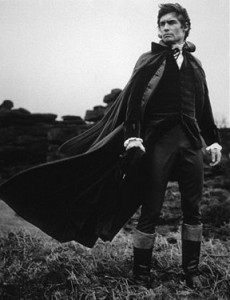 I confess I love romance novels in which there is a tortured hero, because I think any love story needs conflict, some struggle that must be overcome, and inner conflict is, for me, the most compelling. I love human characters, real characters, who are imperfect and wrestle with themselves, because these are people with whom I can relate. Heroines are always conflicted, but when the hero is truly tortured, you cannot help but feel a pull to him. You yearn to soothe him and fix him, and you’re awash with empathy for his plight – such powerful feelings which make you keen to read on.
I confess I love romance novels in which there is a tortured hero, because I think any love story needs conflict, some struggle that must be overcome, and inner conflict is, for me, the most compelling. I love human characters, real characters, who are imperfect and wrestle with themselves, because these are people with whom I can relate. Heroines are always conflicted, but when the hero is truly tortured, you cannot help but feel a pull to him. You yearn to soothe him and fix him, and you’re awash with empathy for his plight – such powerful feelings which make you keen to read on.
For me, the attraction with tortured heroes began back in my teenage years with two characters created by two very famous literary sisters:
Mr Rochester, Jane Eyre: Such a mysterious man, and surely the original silent-and-brooding type. As a reader, you cannot help but feel a little wary of him on your first reading, and yet you are unable to stop yourself willing Jane and he to find a way to be together.
“No – no – Jane; you must not go. No – I have touched you, heard you, felt the comfort of your presence – the sweetness of your consolation: I cannot give up these joys. I have little left in myself – I must have you. The world may laugh – may call me absurd, selfish – but it does not signify. My very soul demands you: it will be satisfied: or it will take deadly vengeance on its frame.”
Heathcliff, Wuthering Heights: A tragic hero if ever there was one. Charlotte Brontë’s writing allows us to get right into his mind and see at first hand the torment he endures as a result of cruel circumstance and his love/hate relationship with Cathy.
“Be with me always – take any form – drive me mad! Only do not leave me in this abyss, where I cannot find you! Oh, God! it is unutterable! I cannot live without my life! I cannot live without my soul!”
When the story for my novel Burning Embers first started taking shape in my mind, I knew at once that Rafe, the hero, would be a tortured soul. He is an honourable man, a loving man, but he is entirely impeded. First, by his reputation as a womaniser and heartless exploiter of Coral’s father. Second, and far worse, by a dark secret he locks away in his heart – a secret that so pains and shames him, he feels himself undeserving of love.
A hand pinched Rafe’s heart, and his eyes clouded. Could the idealistic, platonic love he had nurtured for her portraits turn into something deep and even more wonderful: the salvation to his jaded life? But how could a man with years of baggage behind him aspire to be with such innocence and purity? And how could Coral ever be interested in Rafe when general society condemned him for, among other things, disloyalty to a man who was adored and respected by everyone and who had lent him a helping hand? Her own father, no less. Coral had everything going for her: beauty, a promising career, money, and, by the looks of it, courage and character. Surely her heart was already engaged, and she wouldn’t spare him a thought? Anyhow, as she’d said, his reputation had preceded him. And if he should try to defend himself to her…to what end? She would never believe him, and in any case, he had too much of a past for her to take on. No, it would be wrong to attempt to see her again or to entertain thoughts about things that could never be.
Poor Rafe; my heart ached for him as I wrote. Could I write a book with a hero who had no emotional baggage; who was perfectly at ease with himself and had no lessons to learn, no difficult obstacles to find the courage to tackle? No, I don’t think so.
April 24, 2013
Huge Publication Anniversary Giveaway! Win one of 20 great romantic prizes
Today marks a year since the publication of my debut novel, Burning Embers. What a wonderful year it has been! I’ve loved getting to know so many new people, both readers and other, supportive writers, and it’s truly been a time in which dreams have come true for me.
To commemorate Burning Ember’s first birthday, I am giving away a whole heap of romantic goodies worth in total £200 ($300):
10 x Burning Embers in paperback – “romance like Hollywood used to make”
3 x Peter Borthwick’s This Moment CD jazz album
3x £5 ($8) Amazon gift cards
Chocolate Ballotin Assortment Bath Gift Set
Lily Flame Scented Candle Tin – Blush
The Classic Bronte BBC DVD Box Set: Jane Eyre / Tenant Of Wildfell Hall / Wuthering Heights (£8)
Pride & Prejudice DVD (2005 film)
For a chance of winning, simply comment on this page by 24 May, telling me which of the following Burning Embers quotes (1, 2 or 3) is your favourite:
“Coral, my love, you are too pure, too innocent, too alive for me,” he said slowly, almost carefully. “My world is like a drawing in black and white on a gray canvas, without a single note of color to bring it to life. And now, on this pale and melancholic picture, a red flower has fallen, a warm and scented flower.” He sighed. “It’s a wonderful contrast, but too vivid…”
“Gradually the mist had lifted, and the sun burst forth, a ball of fire radiating the sky with unnaturally incandescent hues. Coral was reminded of the strident brushwork and wild colours of the Fauvist paintings that filled her mother’s gallery, which Coral had always loved. The scene was now set for the show to begin: the drama in which the broad, breath-taking landscapes of Africa were the stage and the animals the actors.”
“Rafe had sat back in his chair so his face was in the shadow, but she knew he was watching her through half-closed eyes. When he leaned forward, the fire from the candles flickered, throwing shadows on the planes of his face. She could see his eyes clearly now, and their steady focus was causing her insides to stir. There was romance in the still air; the rhythm of dripping water from the fountain behind him, the velvet sky studded with stars, the balmy perfumes of the night, all combined to accompany the endless song that had begun in her heart again as she watched him, enthralled.”
Here are the rules for the comp:
Comment by 24 May to be in with a chance of entering.
Be sure to include your email address, or I can’t pick you as a winner because I can’t contact you to pass on a prize!
For postage reasons this competition is open to UK and US residents only – please let me know in your comment which country you are from.
Good luck!
April 23, 2013
Colours to inspire
April 21, 2013
Tea versus coffee – which is the more romantic?
Recently, I was watching a fascinating BBC documentary about the British love affair with tea (see http://www.bbc.co.uk/programmes/b01rx1wx). Not only did it lead me to put the kettle on and reach for the teapot, but it also made me think about tea versus coffee, and how we choose either drink based (if not on taste) on the kind of mood we are trying to create. I decided to take a look back at my novel Burning Embers and explore how I’d used tea and coffee in that romance story, to determine which is the more romantic of the drinks.
Tea
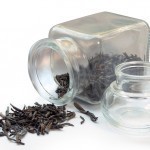 I found various mentions of tea in my book, especially in relation to Aluna, Coral’s old nanny. It’s a comforting drink, grounding and recharging. Take the following excerpt:
I found various mentions of tea in my book, especially in relation to Aluna, Coral’s old nanny. It’s a comforting drink, grounding and recharging. Take the following excerpt:
“Are you convinced now that you’re in no condition to move?” He laid her down gently on the bed and pulled the sheet over her. “I’ll bring you something to eat and some hot tea. We’ll take it from there,” he said in an even voice, then looked at her solemnly and walked out, leaving her alone in the room.
Rafe is caring for Coral after a car accident, and a cup of tea is offered for calming, settling relief. By the same token, when Coral is nursing Rafe later in the book, she also offers him tea:
Rafe slept all day with Coral sitting next to him, helping him up, holding him against her when bouts of recurrent chills shook him, or gently pushing his shoulders back into the pillows when the fever agitated him. From time to time, she would urge upon him spoons of hot tea or press a water-soaked cotton cloth to his parched lips to refresh him.
Verdict: Tea is soothing, revitalising, healthful and, when offered to another, a way to say, ‘I’d like to take care of you.’
Coffee
 A coffee plantation is one of the settings in the novel, so it is unsurprising that coffee features often as a drink in the novel.
A coffee plantation is one of the settings in the novel, so it is unsurprising that coffee features often as a drink in the novel.
On the one hand, it is a drink for breakfast, to clear away the cobwebs woven the previous day:
When Coral walked into the dining room, she noticed too late that Rafe was on his own, making his way to the sideboard. “Ah, Miss Sinclair,” he exclaimed jovially as she appeared in the doorway, “did you sleep well?” Coral’s first instinct was to rush from the room, but she stayed. Without looking at him, she knew that he was watching her, and she was damned if she was going to give him the satisfaction of an undignified retreat.
“Can I help you to some eggs and bacon? Absolutely delicious! Or maybe you would prefer a cup of coffee to start off with? Nothing like a cup of the hot brown brew to sober one up.”
But for a delicious feast of a breakfast, coffee must also feature:
He laid out breakfast on the veranda while Coral showered and dressed: champagne, freshly squeezed pineapple juice, the fruit salad he knew she liked so much, scrambled ostrich eggs and caviar, hot toast, delicious exotic jams, eucalyptus honey, and his very special coffee from the Kongoni estate.
What a superb start to the day! Skip forward in time, though, until the sun has sunk below the horizon and the African night has set in, cooling and thick with the sounds of a thousand wild animals. Romance is in the air, and what better drink to infuse that mood than coffee:
Rafe reached for a bottle and two glasses from a cabinet. “A small cognac? Or maybe you would prefer some coffee; either will warm you up.” Once again he surprised her with his attentiveness; he had noticed that she was trembling. The shivers could not have resulted from the beautiful, balmy night, and she wondered if that had also crossed his mind.
Coral decided to be sensible for a change. “I’ll have some coffee, please.”
Verdict: Coffee has that sensuous, stirring quality we associate with romance – the richness of the taste and the aroma and the colour; the creamy consistency; the both comforting and energising properties. For me, when it comes to romance, coffee is king. Although you may invite a beau out for a cup of tea, you’ll more likely have a tête-à-tête over coffee. As English playwright John Van Druten once said: ‘I think if I were a woman I’d wear coffee as a perfume.’ Because who can resist the smell?
In case you are wondering, I looked online and found that you can buy an eau de café – Colombian Coffee Perfume. A little strange, perhaps, but surely more romantic than other strange scents on offer, such as the Stilton perfume I found reviewed in The Telegraph!
April 19, 2013
Book review: Somewhere Between Luck and Trust by Emilie Richards
From the blurb:
Christy Haviland served eight months in prison, giving birth behind bars to the child of the man who put her there and might yet destroy her. Now she’s free again, but what does that mean? As smart as she is, a learning disability has kept her from learning to read. And that’s the least of her hurdles.
Georgia Ferguson, talented educator, receives a mysterious charm bracelet that may help her find the mother who abandoned her at birth. Does she want to follow the clues, and if she does, can reticent Georgia reach out for help along the way?
Both women are standing at a crossroads, a place where unlikely unions can be formed. A place where two very different women might bridge the gap between generations and education, and together make tough choices.
Somewhere between the townships called Luck and Trust, at a mountain cabin known as the Goddess House, two very different women may even, if they dare, find common ground and friendship.
A poignant story with plenty of feel-good elements.
I loved the themes explored in this book – redemption, the meaning of family, self-development, trust and sisterhood. There is so much packed into the book: exploration of literacy, parents’ reactions to a child’s homosexulity, abandonment of a child. The plot is superbly woven together, with plenty of mystery that makes you want to keep turning the pages.
The setting is wonderful (I adore the view on the cover), and I found myself thinking wistfully that every town should have a Goddess House to shelter women who need time and security to find themselves. I loved the female characters in the book – their realism and willingness to have faith and help someone in trouble.
I didn’t think that the romance element of the book was prominent, but there are two love stories interwoven in the story that I found compelling. The focus, more, I think is on family – or perhaps it is just that those aspects of the book most jumped out at me, thought-provoking and powerfully written as they are.
The ending surprised me a little (not predictable, for me). Without wishing to give anything away, I think I’d have preferred a slightly different ending in terms of the resolution of a family issue, but I quite understand why the author wrote the book this way, and in fact I think she is courageous and educative in doing so.
In all, well worth a read if you love intelligently written books with plenty of story and loveable characters.
Somewhere Between Luck and Trust is available now from Amazon; click on the book cover below to visit the store.


